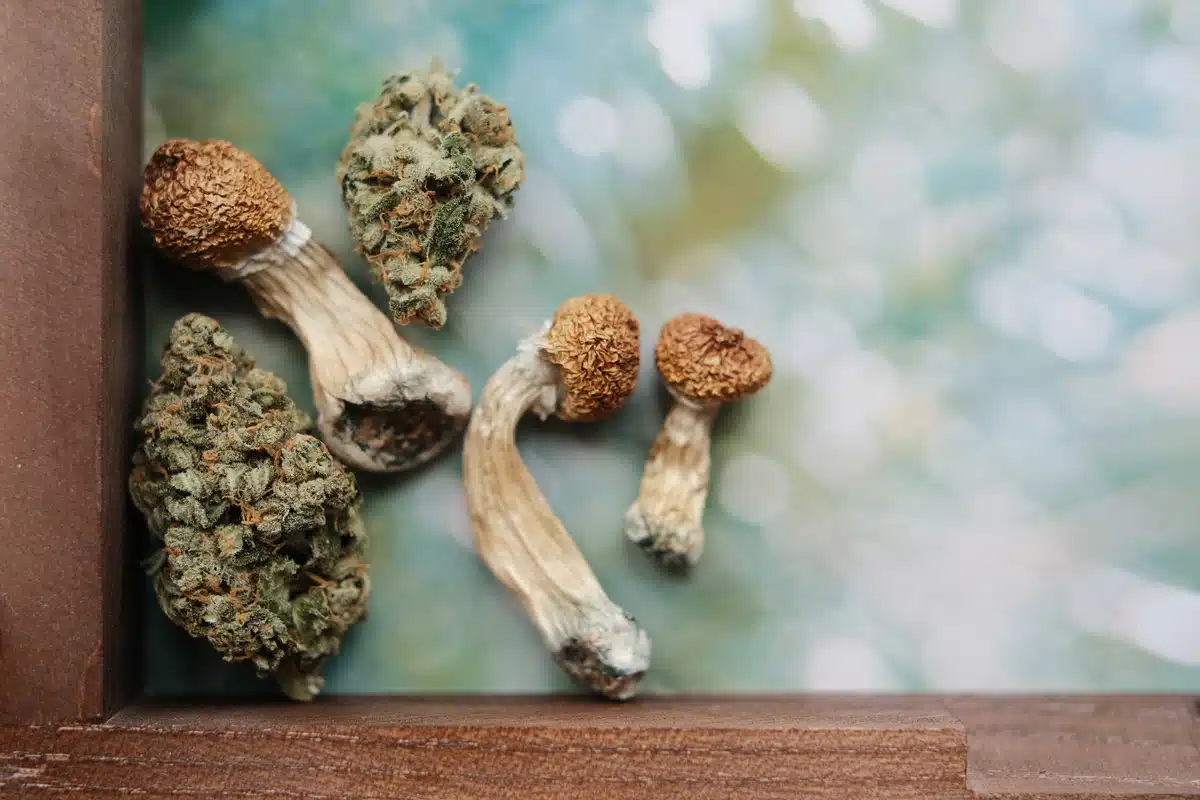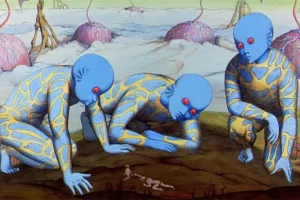A bipartisan group of congressional lawmakers filed a bill this week to clarify that federal “Right to Try” (RTT) laws give seriously ill patients access to Schedule I drugs, including marijuana and psychedelics like psilocybin and MDMA.
While the bipartisan measure would make a technical amendment to the text of existing law, the primary purpose is to clarify—in the face of Drug Enforcement Administration (DEA) objections—that RTT policy, as signed into law by then-President Donald Trump, already means that patients with terminal health conditions should be able to obtain and use investigational drugs that have undergone clinical trials, even if they’re Schedule I controlled substances.
Reps. Earl Blumenauer (D-OR) and Nancy Mace (R-SC), are the lead sponsors of the legislation, titled the “Right to Try Clarification Act.”
“Patients and doctors deserve to discuss treatments—including psilocybin—that researchers find provide immediate and sustained relief from pain, anxiety, and depression for people battling terminal illness,” Blumenauer said in remarks for the Congressional Record. “Federal restrictions have obstructed access to end-of-life care for too long, this legislation will change that and ensure that all patients have the Right to Try.”
“The psychedelics laws in this country are broken, including our laws governing patients’ access to new and promising end-of-life care,” the congressman said. “Forty-one state legislatures have passed Right to Try laws to allow terminally ill patients access to treatments, including psilocybin, that are still in investigational stages. Both psilocybin and MDMA have demonstrated tremendous care potential in phase 1 and phase 2 clinical trials.”
READ: These Cancer Patients Are Suing for the Right to Try Psilocybin
“The Drug Enforcement Agency, however, has refused to accommodate Right to Try laws and denied terminally ill patients their freedom to elect their preferred treatments. These patients deserve to be able to discuss and pursue treatments with their doctors that researchers are finding provide immediate, substantial, and sustained relief from anxiety and depression for people battling terminal illness. That is why the Right to Try Clarification Act is necessary to ensure patients have the Right to Try these treatment options.”
Reps. Madeline Dean (D-PA), Andy Biggs (R-CA) and Lou Correa (D-CA) are also cosponsoring the bill alongside Blumenauer and Mace.
The lawmakers had filed a previous version of the measure last Congress that did not end up advancing. Sens. Cory Booker (D-NJ) and Rand Paul (R-KY) also introduced a companion measure in the Senate at the time, but have not yet done so this session.
How to Grow Shrooms Bundle
Take Both of Our Courses and Save $90!
The clarification sough by the bill, if enacted, could have a direct impact on an ongoing case against DEA, which was sued after refusing to give an oncology doctor access to psilocybin to treat his terminally ill cancer patients.
Psilocybin, along with MDMA, has already advanced in clinical trials and been designated by the Food and Drug Administration (FDA) as a “breakthrough therapy.” Cannabis has also undergone requisite clinical trials.
READ: Psilocybin for Depression: What You Should Know
The three-page bill in Congress is meant to “clarify that the Federal Right to Try law applies to schedule I substances for which a phase I clinical trial has been completed and to provide access for eligible patients to such substances pursuant to the Federal Right to Try law,” its text says.
The legislation contains a findings section that says there are numerous Schedule I drugs that have going through phase I trials and received the breakthrough therapy classification from FDA. There is “preliminary clinical evidence indicating that such drugs demonstrate substantial improvement over existing therapies, but eligible patients have not been permitted access to these drugs pursuant to the Federal Right to Try law,” it says.
To make the existing policy abundantly clear to agencies like DEA, the measure proposes to amend statute by inserting clarifying language about what’s covered.
Last year, bipartisan members of Congress sent a letter, led by Blumenauer, requesting that DEA allow terminally ill patients to use psilocybin as an investigational treatment without the fear of federal prosecution.
In May, Booker and Sen. Brian Schatz (D-HI) separately pushed top federal officials to provide an update on research into the therapeutic potential of psychedelics, arguing that ongoing federal prohibition has stymied studies.
Federal health officials have recognized that federal prohibition makes it harder to study the benefits of psychedelics, requiring researchers to jump through additional regulatory hoops.
Activists including one of the plaintiffs in the Right to Try case, Erinn Baldeschwiler, staged a demonstration outside of DEA headquarters in Virginia last year, demanding that the agency allow terminally ill patients to access psilocybin therapy.
DEA is separately being sued over repeated delays in processing requests for public records related to psychedelics and marijuana.
Meanwhile, the agency announced last year that it was canceling controversial proposals to ban several psychedelic compounds by placing them in Schedule I of the Controlled Substances Act.
The agency has separately increased production quotas for the production of certain psychedelics like psilocybin in an effort to promote research, but its scheduling decisions have continued to represent obstacles for scientists.
*This article was originally published by Marijuana Moment.

DoubleBlind is a trusted resource for news, evidence-based education, and reporting on psychedelics. We work with leading medical professionals, scientific researchers, journalists, mycologists, indigenous stewards, and cultural pioneers. Read about our editorial policy and fact-checking process here.

DoubleBlind Magazine does not encourage or condone any illegal activities, including but not limited to the use of illegal substances. We do not provide mental health, clinical, or medical services. We are not a substitute for medical, psychological, or psychiatric diagnosis, treatment, or advice. If you are in a crisis or if you or any other person may be in danger or experiencing a mental health emergency, immediately call 911 or your local emergency resources. If you are considering suicide, please call 988 to connect with the National Suicide Prevention Lifeline.



